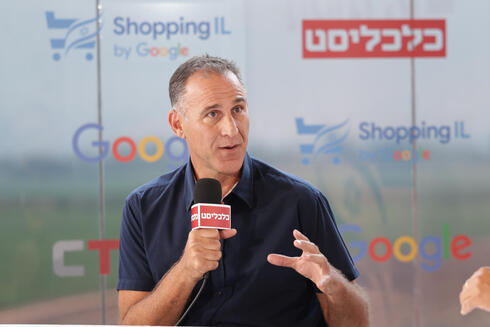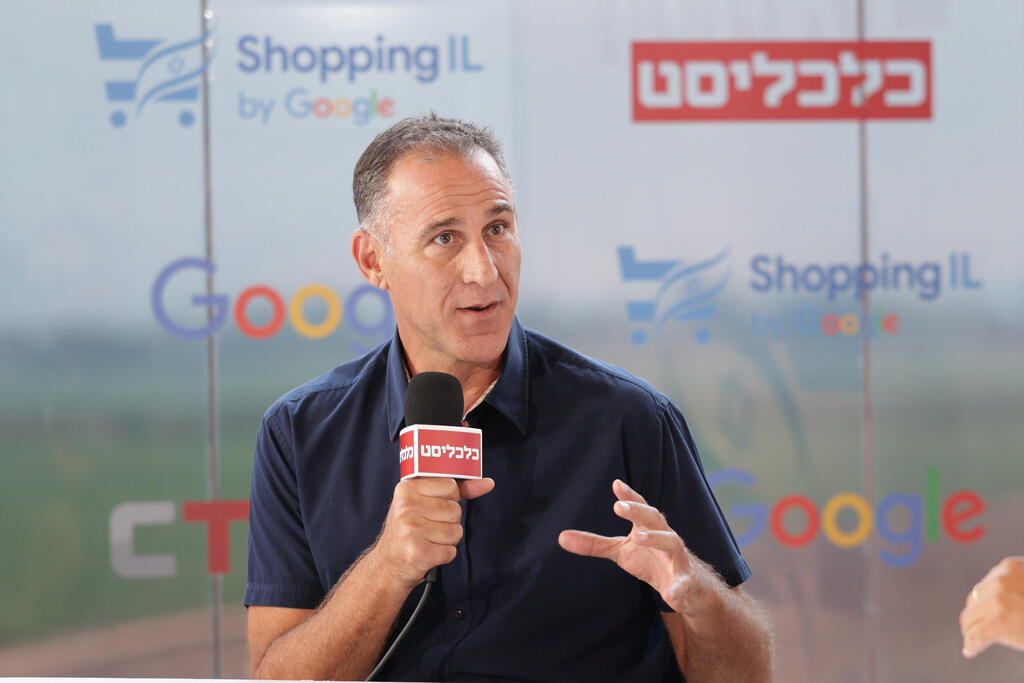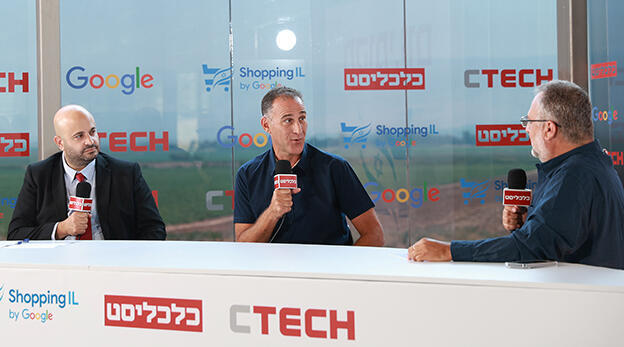
Google Israel Managing Director: “E-commerce is a safety net for small businesses”
At the Calcalist and Google Israel Mekomi conference, Barak Regev explained how e-commerce has helped businesses in the north that could not open their stores during the war: “A small business in Kiryat Shmona can survive this way.” Moti Gamish, Director General of the Ministry of Economy and Industry, added: “This is the time for Zionism, buy Blue and White.”
“Without businesses returning to the north and without support for small businesses, it will be difficult for the economy to grow,” said Barak Regev, Managing Director and Site Lead at Google Israel, in a conversation with CTech Editor-in-Chief Elihay Vidal at the Mekomi conference, hosted by Calcalist and Google Israel. The conversation also included Moti Gamish, Director General of the Ministry of Economy and Industry.
How do you help small and medium-sized businesses?
Gamish: “First, the Ministry of Economy has the Agency for Small and Medium Businesses, which operates year-round. Over 99% of businesses in Israel are small and medium-sized, they are the growth engine and the beating heart of our economy. We offer a variety of programs for these businesses. We provide consulting and work closely with Google and Shopping IL. Over the past year, we’ve launched significant initiatives to support small businesses.”
Regev: “First, our hearts are with the north. The north must be given the spotlight. Small and medium-sized businesses are the backbone of the economy, and it’s our mission to keep finding ways to help them, positioning Israel as the Startup Nation depends on it. Without businesses returning to the north and without strong support for small businesses, economic growth will be hard to achieve.”
Gamish: “In times of crisis, small and medium-sized businesses are the first to be hit, so they need smart, targeted support, and I’m glad Google is our partner. This year we’re going to deliver major programs to help them.”
Where does the Ministry of Economy support small businesses in the north?
Gamish: “Two days ago, the government approved a decision to allocate 600 million shekels to strengthen businesses in the north. We’re bringing a transformative plan to help businesses there. There is a lot of funding for small and medium-sized businesses, and we have big plans. During the war and evacuations, the Agency for Small and Medium Businesses sent consultants to hotels where evacuees were staying. We also provided a large grant fund for businesses that had to stop operating and want to reopen. Our program, ‘Doing Business,’ will provide grants to help businesses get back on their feet. Of course, we also have other support channels.”
Shopping IL is a tool that helps the north. How does it work?
Regev: “We’re marking 12 years of Israeli Shopping Day, and we use it as a platform for small businesses. Small businesses in the north faced serious challenges on October 7th. Even when they weren’t physically open, e-commerce kept them afloat. E-commerce is a safety net for small businesses. For example, a small business in Kiryat Shmona can survive this way. Over the past year, we ran workshops for 3,000 businesses to help them go digital and become more customer-focused.
“Beyond that, there’s AI, a huge leap forward. In the past, a small business might not know how to build a website. Today, AI tools like Google Gemini can do it for them. We also have a project to update business profiles on Google Maps for businesses in the north. This pushes them to the forefront.”
Gamish: “Shopping IL is a core part of our collaboration with Google, it’s a major project. I call on the public: Buy Blue and White, don’t buy from abroad. Support small and medium-sized businesses, now is the time for economic patriotism. Local small businesses can offer better things than buying overseas, and that’s priceless.
“Our ministry has the Blue and White Administration. We promote buying Israeli-made products, generate traffic for local businesses, and run partnerships to boost domestic buying. We also have the Reciprocal Procurement Division. When companies sign contracts with the government, they are required to buy back from Israeli businesses to support the local economy. That’s how we build a cycle that keeps money flowing back into Israeli industry.”
How does this collaboration work?
Regev: “Shopping IL started because we realized e-commerce in Israel needed a boost. Eight years ago, we began working with the Ministry of Economy because supporting Israeli businesses is essential for our economy. We’ve seen a steady increase in searches for Blue and White products. The Ministry of Economy works with us to create a ‘local production’ label, and funds exposure for these businesses on Google. If you manufacture in Israel, we’ll help you prepare for Shopping IL and you’ll likely see a sales bump. Even in a tough year like 2024, we saw purchases increase in November. That shows how strong the desire and ability of both businesses and consumers really are.”















